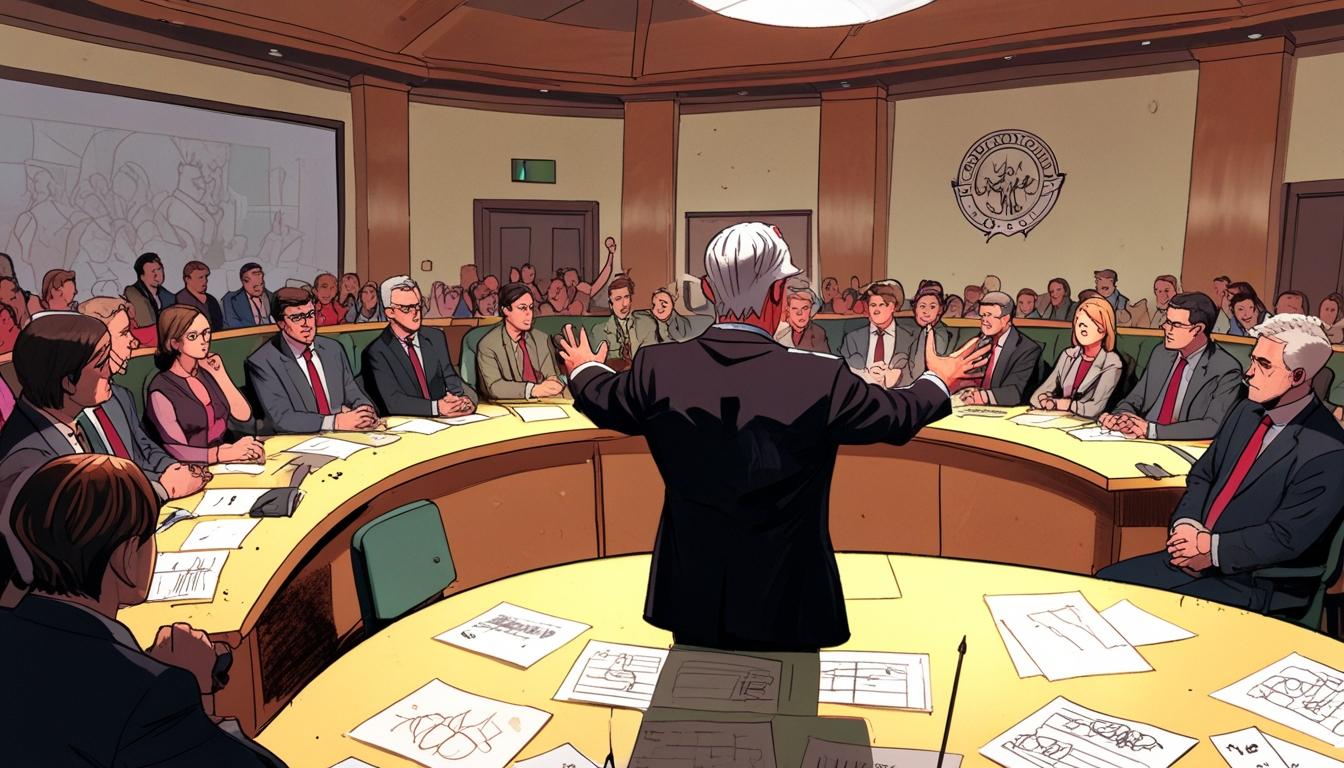The new Provost of Angus, Craig Fotheringham, has swiftly found himself at the centre of a political controversy over a £5,000 pay rise, igniting tensions following a recent shift in council leadership. Fotheringham, a Conservative from Monifieth, was appointed in a special council meeting as a coalition of Conservative, Independent, and Labour members took over from the previous SNP administration, which faced a no-confidence vote last month.
This transition has not been smooth. The meeting intended to confirm key council posts devolved into a lengthy seven-hour session rife with political disputes and accusations, including claims of "gerrymandering" regarding committee changes. Council procedures had to be suspended to manage the extended debate, highlighting the fractious nature of the council's current political climate.
The focal point of the controversy was the remuneration package for elected officials. The Provost’s salary was set at £32,540, following a national review that saw significant pay increases across various positions. While council staff are facing a proposed 3% pay rise, local government union Unison has described this as "derisory," contrasting sharply with the nearly 20% salary increase for elected members in Angus, including a substantial £50,000 salary for the new council leader, George Meechan.
During the meeting, former Provost Brian Boyd openly challenged Fotheringham, questioning the moral integrity of a pay rise amidst broader fiscal constraints. Boyd pointedly referred to his own tenure, when he opted for a lower salary to better serve the public interest, citing a reduction in his expenses to £858 compared to Fotheringham's reported £17,000. Fotheringham attempted to defend his position, suggesting the salary structure was tied to the salaries of deputy leaders; however, he was later corrected by both officials and former council leaders, acknowledging his misunderstanding.
This dispute unfolds against a backdrop of a significant £51 million budget shortfall projected for Angus Council over the next three years. Local authorities are struggling to balance financial responsibilities with community needs. The increasing salaries for council members, juxtaposed with low offers for staff pay and impending cuts, have sparked concern among residents and employees alike. Some councillors have vehemently opposed the raises, fearing the negative perceptions they may foster amidst ongoing budget cuts.
As this political saga continues, questions about fiscal responsibility within Angus Council remain pertinent. With public services already under strain, the decisions made in the council chambers will likely resonate far beyond the political spectrum, impacting both staff morale and public trust. The session concluded with crucial appointments to key committees, including the planning and housing committees, but the echoes of political dissent linger, signalling a challenging road ahead for the newly formed administration.
Amidst this turmoil, it remains clear that the balance between governance and public sentiment is fragile. The council's decisions on salaries and expenditures will need to reflect a commitment to the community's well-being, rather than merely serving the ambitions of its leaders.
Reference Map
- Paragraphs 1-3, 5
- Paragraphs 1, 4
- Paragraphs 2, 5
- Paragraph 4
- Paragraphs 6, 5
- Paragraph 7
Source: Noah Wire Services
